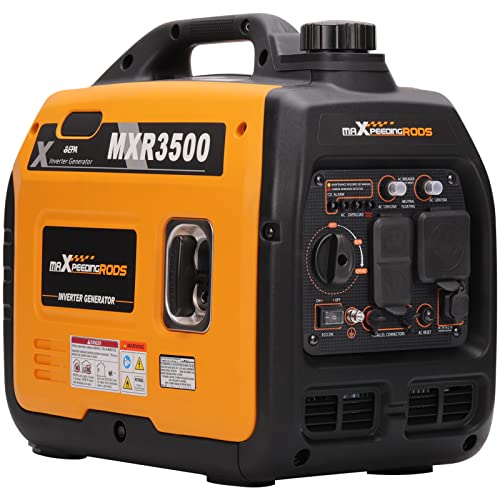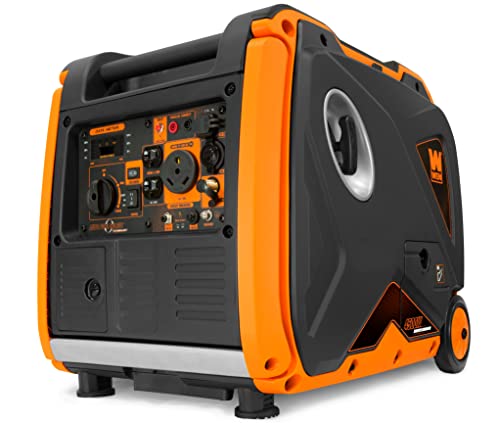RV Generator Size Calculator
Calculate your RV generator requirements by entering your appliances and devices below.
List of the Top 10 Best Generators for RV:
Complete Guide to Choosing an RV Generator
How to Choose a Generator for Your RV?
1. Determine Your Power Requirements
- List all appliances you plan to use
- Consider both running and starting watts
- Account for simultaneous usage patterns
- Factor in future power needs
- Consider altitude effects on generator performance
2. Consider Generator Types
| Type | Best For | Pros | Cons |
|---|---|---|---|
| Conventional Portable | Budget-conscious users, high power needs |
|
|
| Inverter Generator | Electronics-heavy usage, quiet campgrounds |
|
|
| Built-in/Onboard | Luxury RVs, full-time RVers |
|
|
3. Fuel Type Considerations
| Fuel Type | Advantages | Disadvantages | Best For |
|---|---|---|---|
| Gasoline |
|
|
Occasional users, shorter trips |
| Propane |
|
|
Extended trips, cold weather use |
| Dual Fuel |
|
|
Full-time RVers, longer trips |
Key Features to Consider
1. Noise Level
- Quiet operation (50-60 dB) for campground compliance
- Consider inverter technology for reduced noise
- Check campground noise restrictions
2. Portability
- Weight and size for storage
- Wheel kit availability
- Handle design for movement
3. Runtime
- Fuel efficiency ratings
- Tank size considerations
- Eco-mode availability
4. Power Quality
- Total Harmonic Distortion (THD)
- Voltage regulation
- Surge protection
Common RV Appliance Power Requirements
| Appliance | Running Watts | Starting Watts |
|---|---|---|
| RV Air Conditioner (13,500 BTU) | 1500 | 3500 |
| RV Air Conditioner (15,000 BTU) | 1800 | 4000 |
| Microwave Oven | 1000 | 1000 |
| Electric Water Heater | 1500 | 1500 |
| Coffee Maker | 600 | 600 |
| Refrigerator | 400 | 1200 |
| TV/Entertainment System | 300 | 300 |
Frequently Asked Questions When Choosing an RV Generator
What size generator do I need for my RV?
Size requirements depend on your power needs. Generally:
- Small RV (basic needs): 2000-3000 watts
- Medium RV (with AC): 3000-4000 watts
- Large RV (full amenities): 4000-7000 watts
- Luxury RV (multiple ACs): 7000+ watts
Can I run my RV AC with a generator?
Yes, but you need to ensure:
- Generator has sufficient starting watts (typically 2-3 times running watts)
- Proper sizing for altitude operation
- Adequate surge capacity for AC compressor start
Should I choose an inverter generator?
Inverter generators are recommended if you:
- Use sensitive electronics
- Camp in noise-restricted areas
- Value fuel efficiency
- Need clean, stable power
What about parallel capability?
Parallel capability allows you to:
- Connect two smaller generators for more power
- Provide flexibility in power needs
- Share load between units
- Add capacity as needed
Maintenance Considerations
Regular Maintenance Schedule
| Interval | Tasks |
|---|---|
| Every Use |
|
| Monthly |
|
| Annually |
|
Safety Tips
- Proper Ventilation: Always operate outdoors or in well-ventilated areas
- Carbon Monoxide Safety: Install and maintain CO detectors
- Fuel Storage: Follow proper fuel storage guidelines
- Regular Inspection: Check for fuel leaks and damaged components
- Grounding: Ensure proper generator grounding
- Weather Protection: Use appropriate covers and shields









